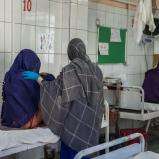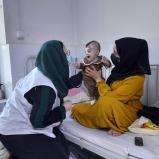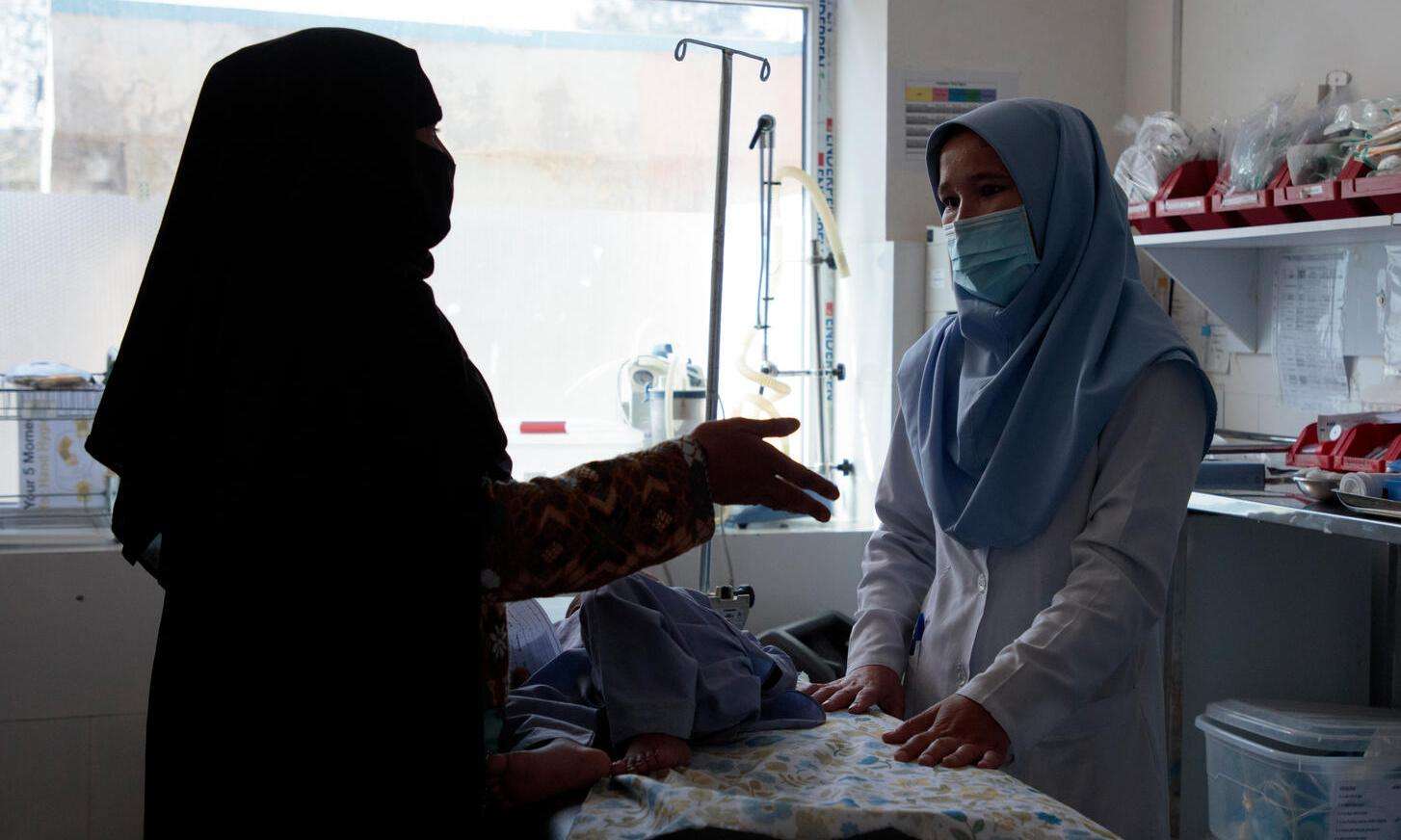The future of female patients and health workers in Afghanistan is threatened by a recent decree issued by the Ministry of Economy prohibiting women from working for non-governmental organizations (NGOs). While health workers, including staff from Doctors Without Borders/Médecins Sans Frontières (MSF), are currently considered exempt from the ban, there is no formal assurance that they will be able to continue to work unhindered. Many people in Afghanistan depend on humanitarian aid and support from NGOs for medical services and other basic needs. The participation of women NGO workers in the provision of health care services is absolutely essential. Women make up more than 51 percent of MSF’s medical staff in Afghanistan, including nearly 900 doctors, nurses, and other professionals.
MSF has condemned the ban issued by the Islamic Emirate of Afghanistan (also known as the Taliban). Many of the women working with us on staff have also voiced their frustration and fears for the future.
“In the hospital, we have lots of patients who are women. When they fall sick or need to deliver a child, they must have a place to go. If the Taliban prevents female staff from working, no one will be able to take care of them,” said Farzaneh,* an Afghan woman working with MSF.
“A woman’s health affects the health of her whole family. If there is no access to pre-natal and post-natal services, children’s lives will be put at risk as well. This ban will not affect just women, it will affect the country.”

Expanding access to urgently needed maternal health care in Afghanistan
Read moreAnother MSF staff member echoed these concerns. “If this ban is extended to health workers, then things will be very difficult for female patients as well. Many families will not accept for women to be treated by men. All of this can harm Afghan women in several ways, including by an increase in maternal and infant mortality.”
In addition to worsening existing issues regarding lack of access to humanitarian assistance, the new ban compounds a dire social and economic crisis. Afghanistan has been crippled by unemployment and sanctions imposed by foreign governments, particularly the US administration, which still controls many of the funds of the Afghan Central Bank.
“There are seven people in my family that I provide for. If I become unemployed, no one will be able to support the family,” explained Benesh, another female staff member from Afghanistan. “Many women in Afghanistan are the breadwinners for their families because the men are unable to work, have fled the country, or have died. Every day I think a lot about what I would do if I were not allowed to work anymore.”

Afghanistan: One year after US withdrawal, massive humanitarian needs remain
Read moreWomen and children are among the most vulnerable groups in Afghanistan. Many of the concerns raised by MSF's female staff are shared by other Afghan women: “The recent ban has already caused psychological problems for many women and their families. We fear that every day at work can be our last. Getting to offices seems more and more difficult. Already I see that the people at checkpoints look for any excuse to prevent women from moving freely. For example, my sister was sick recently, and when she was traveling to our hospital for a check-up, they did not allow her to go because she didn't have a mahram (escort). She stood there for about 50 minutes, outside in the cold. Then my brother came, and they allowed them to leave. It is difficult to know that we are something less.”
Soraya, another Afghan women working with MSF, had a powerful message to deliver. “I would also like to say one thing to people who might be reading this: please do not forget the women in Afghanistan,” she said. “No society can do well without both women and men. We all need to be involved in our communities to make things better.”
* The names of all women quoted in this article have been changed to protect their identities.
How you can help
Not everyone can treat patients in the field. But everyone can do something.
Some humanitarian crises make the headlines—others don’t. Unrestricted support from our donors allows us to mobilize quickly and efficiently to provide lifesaving medical care to the people who need it most, whether those needs are in the spotlight or not. And your donation is 100 percent tax-deductible.




